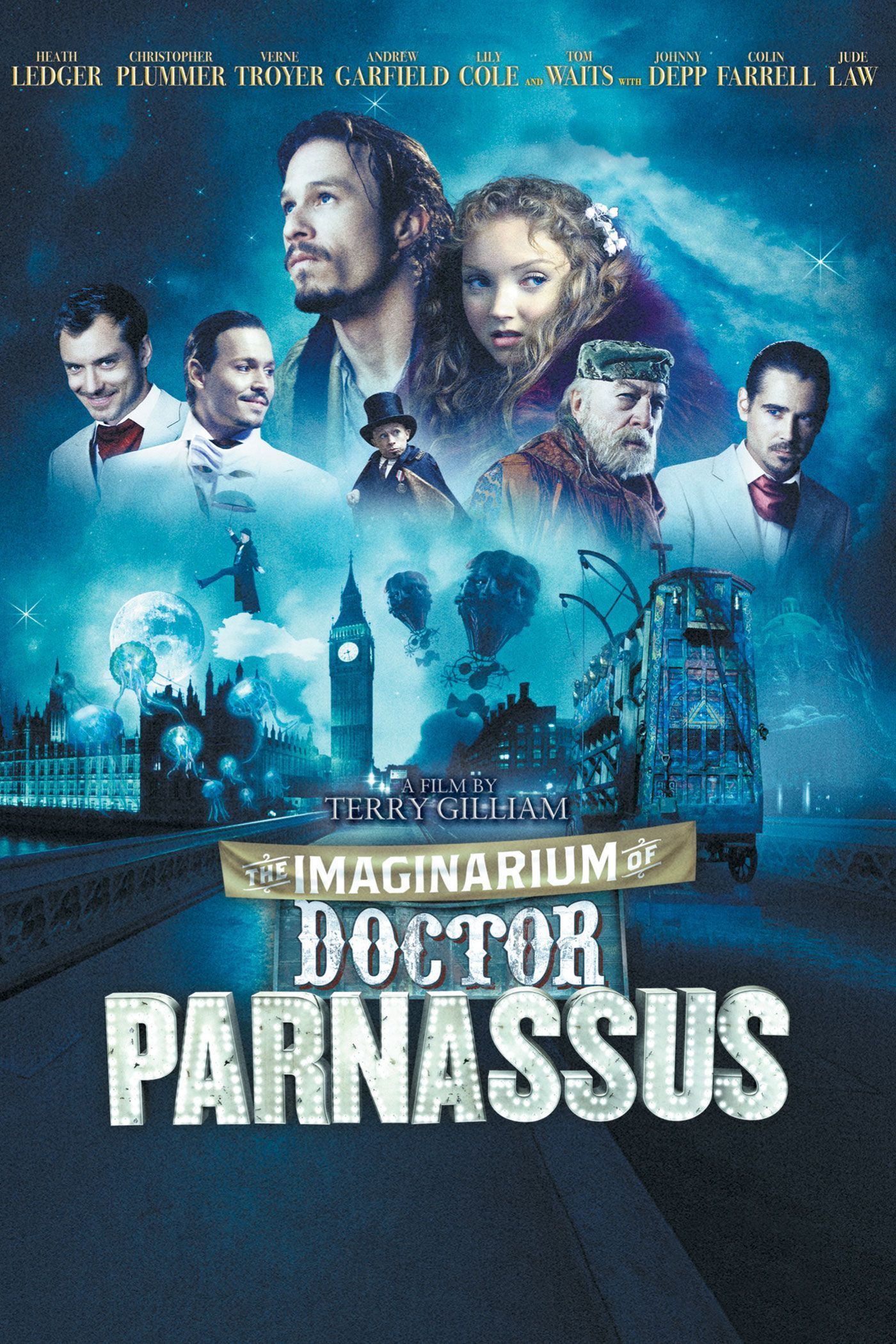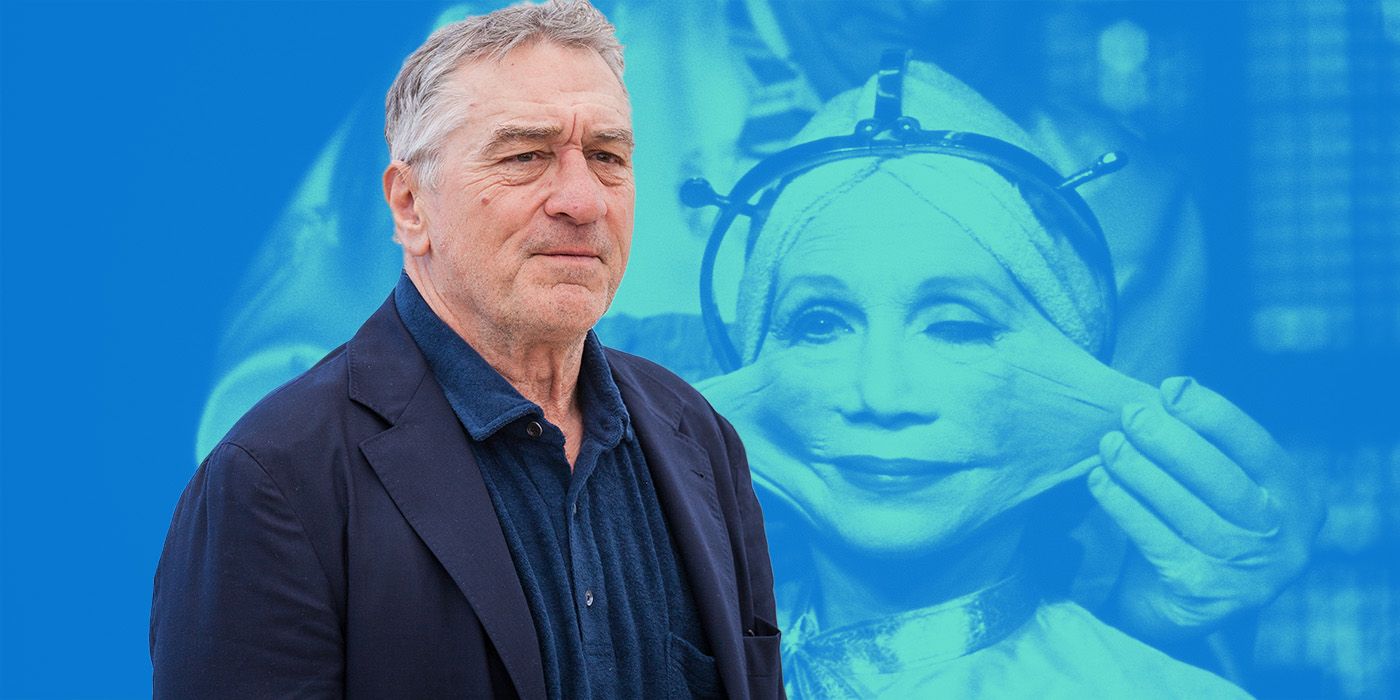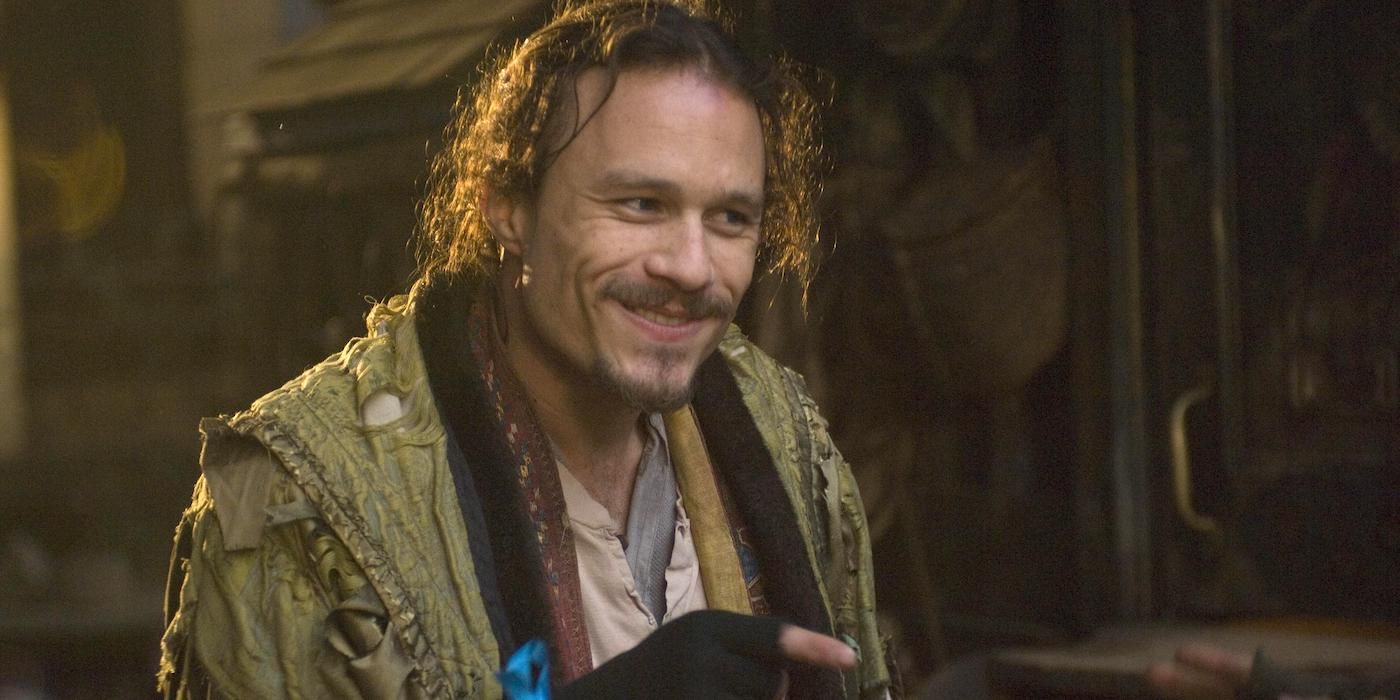The Big Picture
- The tragic death of Heath Ledger during the filming of The Imaginarium of Doctor Parnassus led director Terry Gilliam to recast Ledger's character with three different actors, ensuring the completion of the film without costly reshoots.
- Heath Ledger's performance in The Imaginarium of Doctor Parnassus showcased his versatility as an actor, transitioning from light comedies to more intense roles.
- Terry Gilliam, the director of The Imaginarium of Doctor Parnassus, called on Heath Ledger's friends Johnny Depp, Jude Law, and Colin Farrell to complete the film after Ledger's death.
You never want to see an actor get replaced, really for any reason. Those reasons could range anywhere from bad behavior off-screen to salary disputes, to the classic "scheduling conflicts" excuse, but the worst possible reason for having to recast someone is a tragic death. There haven't been many instances of this throughout Hollywood history, but one of the most notable examples was when Heath Ledger passed away in 2008 while shooting what would become his final film role, The Imaginarium of Doctor Parnassus. This could have completely tanked the project and caused it to shut down, since Ledger was playing an important character whose actions helped drive the plot. However, writer/director Terry Gilliam came up with an idea that worked within the confines of his magical fantasy world: he recast Ledger's character with three different actors, all friends of Ledger, and all playing the same character.

The Imaginarium of Doctor Parnassus
- Release Date
- October 1, 2009
- Director
- Terry Gilliam
- Cast
- Johnny Depp , Colin Farrell , Heath Ledger , Christopher Plummer , Jude Law , Lily Cole
- Runtime
- 122
- Main Genre
- Adventure
- Writers
- Terry Gilliam , Charles McKeown
What Is 'The Imaginarium of Doctor Parnassus' About?
The Imaginarium of Doctor Parnassus is the story of Doctor Parnassus (Christopher Plummer), a traveling magician who runs a touring acting troupe. His main attraction is a world accessed through a magic mirror that allows patrons to experience their innermost desires and choose between self-fulfillment or blissful ignorance; if they choose self-fulfillment, then he will have "won" their souls. Parnassus has a daughter about to turn 16, and it's revealed that he has made a deal with the Devil (Tom Waits) that Parnassus will give the Devil his daughter once she turns 16 in exchange for eternal life. In order to avoid that, Parnassus strikes a new bet with the Devil: if Parnassus wins five souls via self-fulfillment, then his daughter can stay with him.
After the bet starts, the troupe comes across an amnesiac man named Tony (Heath Ledger), and Tony proves to be so effortlessly charismatic that Parnassus decides to have him join the troupe, in order to persuade more traveling souls to go toward the path of self-fulfillment. This doesn't come without its hiccups, as Tony can be a bit of a busybody who thinks he can improve the show with his own ideas, even though he just got there. However, his charisma is just too powerful. With this dynamic in place, Tony spends the rest of the film using his charm and people skills in order to entice people into the Imaginarium so that they may ultimately choose to become better people. This is where Heath Ledger was really allowed to shine in his final role.
Heath Ledger Is Pure Joy in 'The Imaginarium of Doctor Parnassus'
Heath Ledger was an actor who mostly made a name for himself off of light comedies like 10 Things I Hate About You and A Knight's Tale, films that banked off of his glowing looks and effortless charm to get audiences hooked into the emotional stakes. It was a huge shift that he eventually dedicated himself to expanding his tastes, proving himself to be one of the most promising young actors of his time with performances in films like Monster's Ball, Brokeback Mountain, and The Dark Knight. The latter two films in particular felt Earth-shattering, as they showed sides of Heath nobody could have dreamed of, fully transforming himself into two of the most psychologically intimidating roles in recent memory. Not only that, but they were polar opposites in personality: Ennis Del Mar is a deeply repressed loner paralyzed by trauma and unwilling to show any emotion, while the Joker is a nihilistic terrorist who immediately grabs all eyes on him and uses theatricality to his advantage like a wild anarchic lawyer. My point is that Heath really threw himself into the ring at a certain point, and it shows how smart he was about how to approach his career that to follow those roles up, he went for a role that was comparatively far more relaxed and reintroduced the side of him audiences first loved.

11 Movies Where the Stars Died Before Its Release, From 'The Crow' to 'The Dark Knight'
Unfortunately, many actors have had some of their biggest moments in film happen after they passed.Watching Heath Ledger play Tony in The Imaginarium of Doctor Parnassus is an utter delight. He starts off shaky and scared, but once he officially embraces being a member of Parnassus' show, he comes to life. Tony is a snake oil seller, finagling and working everything to his advantage, while remaining fiercely protective of what he considers to be his. The flip side to this is he's a master entertainer; he knows just what the people want and how to get people to want it. Watch him on stage charming women at local supermarkets and malls to get them to take part in the Imaginarium, and watch the way he can be so chummy with people while thinly masking his inner slime, and you'll fall back into the dynamic spell that Ledger could cast. He's a pure charisma-cannon on full blast, and it's heartening to see him be so at ease with himself, throwing himself into that frenetic Gilliam energy with aplomb. Terry Gilliam has said in an interview with Wired that, on set, Ledger was "ad-libbing a lot. He was so fast, and so good at it. For me, it was a joy to watch him come up with fresh lines and different takes," and you believe it, which makes it all the more crushing how Ledger's collaborators reacted to his passing.
Director Terry Gilliam Called on Johnny Depp, Jude Law, and Colin Farrell To Finish the Movie
In December 2009, Terry Gilliam gave an interview with CBS where most of the pertinent information on how he fixed this mess can be found. After Ledger's death, Gilliam was at a loss as to what to do, as Ledger was the biggest star and some of the financing for the film happened in part due to his presence. The director contemplated using CGI to augment Ledger's appearance, but rejected it, realizing that he had the perfect plot device already: a magic mirror. Gilliam came up with the idea that when Tony goes through the mirror, he changes shape, and "since he passes through the mirror three times, it seemed logical to use three different actors." Luckily, they had shot most of Ledger's scenes that take place in the real world first and none in the Imaginarium, and by all accounts, Gilliam "didn’t change any of the words" to accommodate Ledger's death, outside some casual comments that explain Tony's shape changes because the person he's with imagines him looking that way.

Robert De Niro Saved This Terry Gilliam Movie From Being Shelved
When push comes to shove, always do whatever Robert De Niro demands.Gilliam first turned to Johnny Depp, since they had worked together on Fear and Loathing in Las Vegas, and Depp and Ledger were also good friends in real life. Depp happily agreed, wanting to do right by his friend, and with that, Gilliam decided that the other two actors should also be Heath's friends, because "I just wanted to keep this family — it's as simple as that... It had to be in the family somehow, I don't know why; it was my attitude." So he turned to Jude Law and Colin Farrell, both friends of Ledger's as well.
With this in mind, it's pretty remarkable how seamless the trick is. Since Tony is always wearing a white mask when entering the Imaginarium, it allows his face to be hidden from us until he takes it off, thereby allowing the new actor to step right in. The Depp, Law, and Farrell all give surprisingly varied performances, but Gilliam argues in the aforementioned CBS interview that it works because "it reflected the different aspects of Tony, it revealed different sides to him, and you realized what a fraud he was."
Of the three, I would say that Jude Law gives the best approximation of Ledger's performance, being very manic and boisterous and leaning into his British accent. Farrell plays up the "true" Tony, a lecherous scam artist who's a phony in public, and he revels in the shameless backstabbing and sleazeball energy that was lurking inside Ledger. As for Depp, his interpretation is arguably the largest swerve; he's tapping into a more romantic debonair style, and we don't get to see Ledger that way much, save for one scene. But Depp's section has arguably the most poignant moment, where he has a monologue about how dead icons are forever "immortalized", and how they never age or change from how we remember them. This is wild since Gilliam claims that the entire scene was "in the original script, which people don’t understand. They all thought we had written this stuff after Heath had died and no, we didn’t change any of the words."
'The Imaginarium of Doctor Parnassus' Honors Heath Ledger's Legacy
Ultimately, The Imaginarium of Doctor Parnassus wound up being successful, both financially and critically, so thankfully Heath Ledger didn't go out with a bad movie. More importantly, the release of the film became a celebration of Ledger and his gifts, especially given Gilliam's nice touch that, when the credits roll, it's credited as "A Film From Heath Ledger & His Friends." Gilliam and all the actors involved spoke glowingly of working with him, and when combined with his posthumous Oscar win for The Dark Knight, it bolstered his new reputation as one of the most promising talents lost too soon, and a delightful soul to have spent time with. While it's tempting to wallow in the sorrow of all that we lost out on in terms of performances, it's much better to savor what Ledger left behind.




